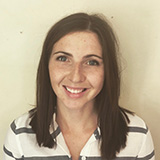Advice on how to ease the transition from being a student to a doctor
Graduating from medical school after at least five years of study can be both exciting and daunting. Seemingly overnight you transition from being a student to a doctor; a title which brings with it new responsibilities and expectations. The foundation programme gives you the chance to learn on the job, as well as being a great opportunity to meet new people and become a part of a clinical team.
However, many new graduates find this to be a stressful time and almost a quarter feel inadequately prepared to start work as a foundation year one doctor (FY1). [1][2] Coming to the end of our first year, we have some tips to help out new doctors.
Be organised. It is your job as the FY1 to know the patients. Keep a list of patients’ backgrounds and outstanding results. Have a separate column for jobs that need to be done, so that you can easily write in tasks. The coloured box system seems to be universal to all FYs and is an effective communication tool for colleagues—an empty box indicates a task that needs to be done, a line through the box indicates that it has been requested, and the box is coloured in when the job has been done.
Prioritise your workload. After a ward round it is important to prioritise your jobs—a sort of real life situational judgement test. Reviewing unwell patients always comes first. Scans and referrals should be done early so that they can be completed sooner. If your hospital requires a discharge summary for patients going home, add the medicines to it first and send it to the pharmacy. While that is all processing, it gives you time to move on to reviewing results.
Think ahead. For every new patient, where appropriate, consider prescribing analgesia and possibly ‘as required’ anti-emetics, and laxatives. This will save you and colleagues from being called back, especially on nights and weekends. When prescribing intravenous medications, check that your patient has a cannula and that it is not due to be replaced. For certain medications (e.g. Warfarin, Gentamicin), ensure that a blood test to determine dosage has been requested. When asked to prescribe fluids, review if there is ongoing clinical need—are the patients able to maintain fluid balance through oral routes? Always assess for deep vein thrombosis risk and consider prophylaxis, especially on surgical wards.
Be prepared to ask for help. Starting out, every job you’re asked to do seems challenging but every doctor has been in your position and felt those worries. If you’re ever unsure, ask for help. We will be your FY2s and would much rather you ask us a seemingly stupid question than risk making a mistake. If you’re worried about a patient, do the basics (e.g. ABC assessment, clinical examination) and let someone senior know early. The words “I’m really worried about so-and-so” often make seniors sit up and listen. Use the multi-disciplinary team; you are likely to be working with very experienced nursing and other staff so don’t be afraid to ask for their input.
Take pride in your role. You may feel like “just an FY1” but your job is extremely important and you hold a lot of responsibility. Be thorough, examine every patient systematically, clearly document your findings, and ensure that you treat your patients and colleagues with the utmost respect. Patients and their families place a huge amount of trust in you—take the time to talk to them, it’s often the most rewarding part of the job.
Keep your E-Portfolio up to date. As much as we dislike it, the e-portfolio is used to determine whether you pass or fail your foundation training. Arrange to meet your supervisor early on and identify any potential issues. Send out team assessment of behaviours (TABS) forms early as it’s surprisingly difficult to get ten individuals to complete them. Be proactive; if you clerk a patient and present them, or ask for advice from a senior, ask if you can send them a case-based discussion to complete.
Take a break. Both in and outside of work, breaks are important. There are few occasions when a task cannot wait for a ten-minute coffee or lunch break. If needed, ask a colleague to cover—and ensure the nurses know how to get hold of you for urgent matters. When you’re not at work, switch off and stop dreaming about chasing repeat troponins. When you start out you’ll find work consumes every waking (and sleeping) minute but it’s important to switch off and keep up with friends.
Look after yourself. Make the most of this time; you have the rest of your career to attend conferences, publish papers, and study for exams. Optimise your days off—try new hobbies, travel, keep active and have fun. Value your own health: it’s a tiring job, both physically and mentally, and you will inevitably have highs and lows. Identify a trusted friend or colleague for sharing your good and bad days. Remember, you’re not alone and there is always someone who will be able to help.
 Anna Rose is an academic FY1 at the Queen Elizabeth University Hospital Glasgow. @a_f_rose
Anna Rose is an academic FY1 at the Queen Elizabeth University Hospital Glasgow. @a_f_rose
 Kirsty Rolland is an FY1 in Raigmore, Inverness on the rural track foundation programme. @kirstyrolland87
Kirsty Rolland is an FY1 in Raigmore, Inverness on the rural track foundation programme. @kirstyrolland87
 Arun Krishna is an FY1 at the Queen Elizabeth University Hospital Glasgow.
Arun Krishna is an FY1 at the Queen Elizabeth University Hospital Glasgow.
References:
- Morrow G, Johnson N, Burford B, et al. Preparedness for practice: the perceptions of medical graduates and clinical teams. Med Teach 2012;34.
- General Medical Council. GMC UK National Training Survey 2011. 2011; Available at: https://www.gmc-uk.org/-/media/documents/NTS_trainee_survey_2011.pdf_45270429.pdf. Accessed 17 June, 2018.
